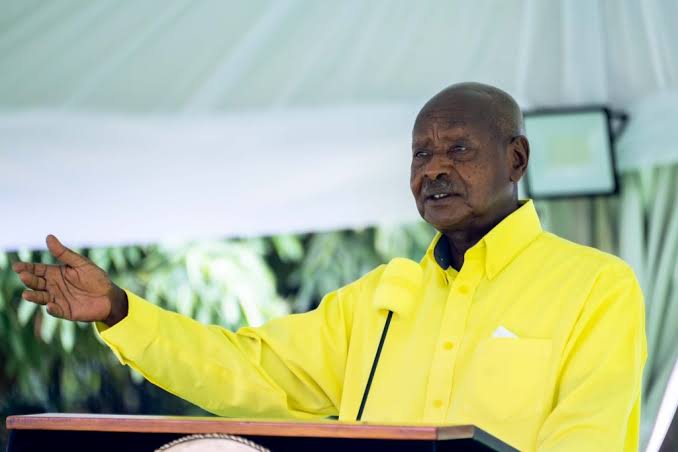Articles
Just In!! NRM MPs Summoned to State House Over UPDF Amendment Bill

Members of Uganda’s ruling National Resistance Movement (NRM) have been called to a special caucus meeting at State House, Entebbe, on Friday, May 2, 2025, at 12:00 PM.
The announcement was made Monday morning by Government Chief Whip and NRM Parliamentary Caucus Chairperson, Denis Hamson Obua, who urged members to adjust their schedules accordingly. An official invitation is expected to follow.
While the meeting’s agenda has not been publicly disclosed, it comes amid heightened debate over the Uganda People’s Defence Forces (UPDF) Amendment Bill, which is currently under scrutiny in Parliament.
Cabinet is expected to finalize its position on the proposed bill today. If approved, it could pave the way for the reintroduction of military trials for civilians—a contentious issue that was previously ruled unconstitutional by the Supreme Court in 2021.
On April 17, 2025, Justice and Constitutional Affairs Minister Norbert Mao briefed Parliament on the government’s plan to revise the UPDF Act. He confirmed that a new version of the UPDF Amendment Bill, drafted by the Directorate of the First Parliamentary Counsel, had been submitted to the Ministry of Defence and Veteran Affairs for review.
If endorsed, the bill will be presented to Cabinet before heading to Parliament. It replaces the earlier 2024 version, which was withdrawn to comply with the Supreme Court’s landmark ruling in Attorney General vs. Hon. Michael Kabaziguruka (Constitutional Appeal No. 02 of 2021). In that case, the Court found that trying civilians in military courts violated Article 28 of the Constitution, which guarantees the right to a fair hearing.
Minister Mao noted that the revised bill addresses key areas including:
The composition and powers of military courts
Categories of individuals subject to military jurisdiction
Exceptional cases involving civilians
Regulation of arms, ammunition, and classified materials
Appeal processes from military to civilian courts
The use of military courts to try civilians—often in cases involving firearms or military equipment—has been a longstanding point of contention. Human rights organizations have argued that these courts, run by military officers and under the executive branch, do not offer the impartiality needed for fair civilian trials.
The Supreme Court’s 2021 decision reaffirmed earlier constitutional findings and demanded reforms. The current bill is seen as a key test of the government’s willingness to respect constitutional rights and uphold judicial authority.




















